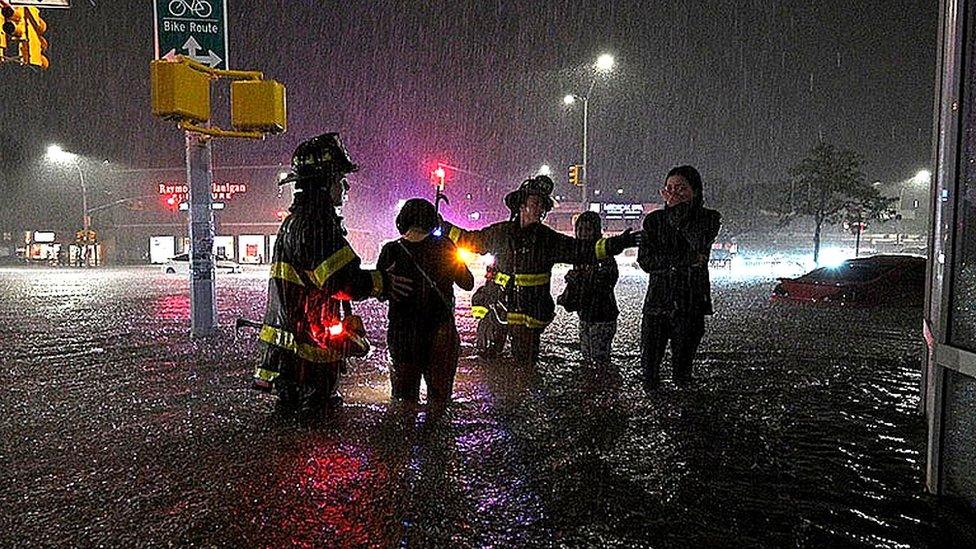New York floods: Basement rescues spark climate change concerns
- Published
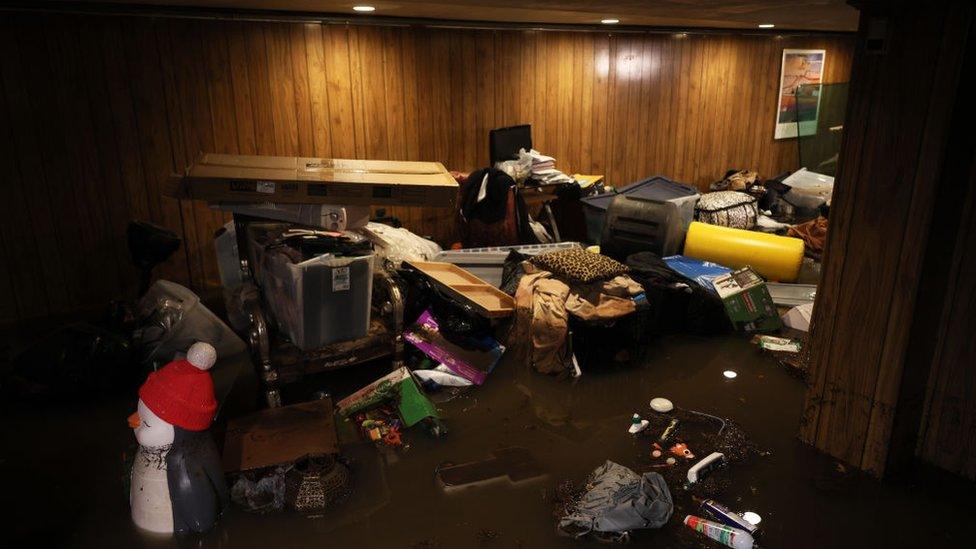
Housing advocates say climate change is turning New York's basement dwellings into 'death traps'
As flash floods inundated New York City, Mayor Eric Adams said: "If you're home, stay home." But for those living in below-ground apartments in basements and cellars, that was not an option.
An estimated 100,000 New Yorkers reside in a vast network of illegal basement dwellings that the impacts of climate change are remaking into "death traps".
When Hurricane Ida hit the city two years ago, 11 such residents died.
On Friday, city officials said at least six had to be rescued amid the floods.
A "number of calls" had come in seeking help related to flooding basements, fire department commissioner Laura Kavanagh said at a storm briefing.
Thankfully, she added, there were no death or injuries to report among these incidents.
Mayor Adams promised shelters would be made available to any basement renters who needed them, and his emergency department chief urged such residents, particularly in the Brooklyn and Queens boroughs, to seek higher ground.
"We're taking this extremely seriously," Zach Iscol said. "Today is the wettest day we've had since Ida."
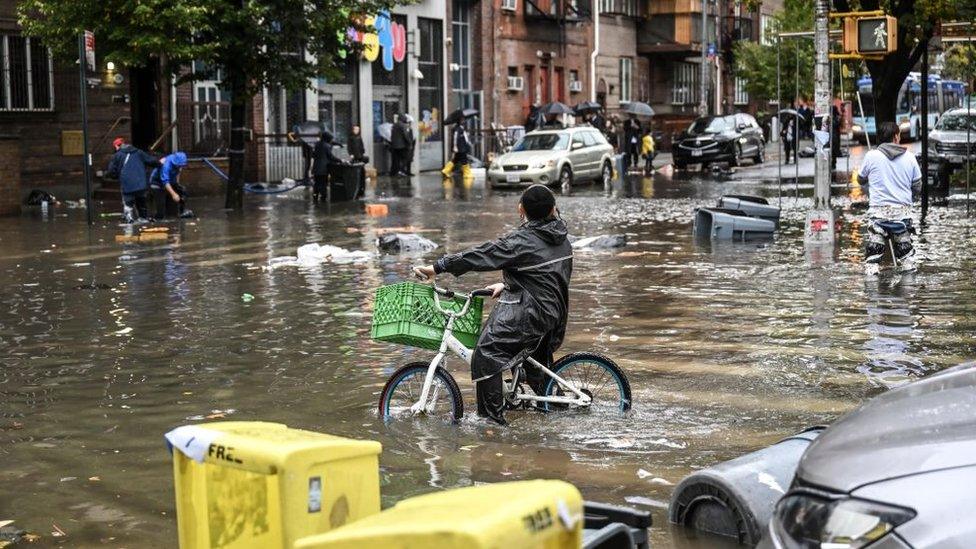
Some parts of New York may see up to eight inches of rainfall on Friday
It was a call back to two years ago, when the remnants of Ida - a category four hurricane that had weakened to a storm - drenched the city with torrential rain.
As water deluged the roads and poured into subway stations, it also drowned 11 Asian and Hispanic immigrants, including a two-year-old boy and an 86-year-old woman, inside their own homes in Brooklyn and Queens.
Bodycam footage from New York police that day showed a dramatic rescue effort in one Woodside, Queens home.
Wading through chest-high waters that continued to rise quickly, the responding officers had their path blocked by locked doors, were forced to retreat due live electrical wiring and called for back up.
But by the time help arrived, Ang Lama, 50, Mingma Sherpa, 48 and their boy Lobsanj Lama, two, were dead.
The ethnicities of the dead were not surprising. Basement dwellings are mostly rented by people of colour living with a low-income or immigrants, desperate for an affordable place to live in a city with an ever-rising cost of living.
Often cheaply built, poorly regulated and chock-full with safety and sanitation hazards, many of these apartments also violate city and state housing laws, with tenants incurring fines and orders to vacate from local housing inspectors.
City officials had pledged, in the wake of Ida, to do more to protect these vulnerable residents.
Flood sensors have been installed to identify and help at-risk neighbourhoods.
The mayor's office earlier this year launched targeted text alerts for those in subterranean housing.
It has also deployed federal funds to rehabilitate and study the resiliency of basement homes.
Public data also suggests there has been a 20% drop in citations for illegal housing since Ida.
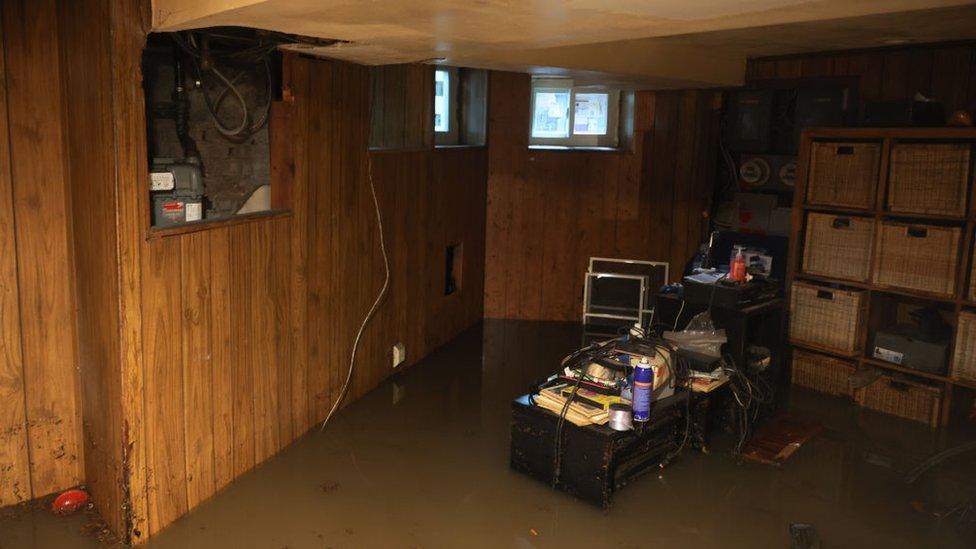
Housing advocates say legalising unauthorised basement units is the quickest way to retrofit them with safety features
But the most ambitious efforts - which housing advocates say would make meaningful change and protect the vulnerable from extreme weather events - have fallen by the wayside.
They include efforts to legalise these unauthorised units, amend zoning laws and ease land use restrictions.
Enacting these kinds of measures means the ability to build or install safety features, like emergency escapes, rescue windows and drainage systems.
With little progress made, however, residents are forced to confront the ravages of climate change on their own for now.
As much as 8in (20cm) of rain could fall in New York before Friday is over.
"I'm experiencing PTSD right now," Queens resident Joy Wong told the New York Times.
Her basement was again filled with water on Friday morning. Two years prior, it was where Ang Lama, Mingma Sherpa and Lobsanj Lama had died.
"It's dangerous to live here. But it's cheap! That's why all my children live here with me," Ms Wong said.
"But we can't live this way."
Related topics
- Published30 September 2023
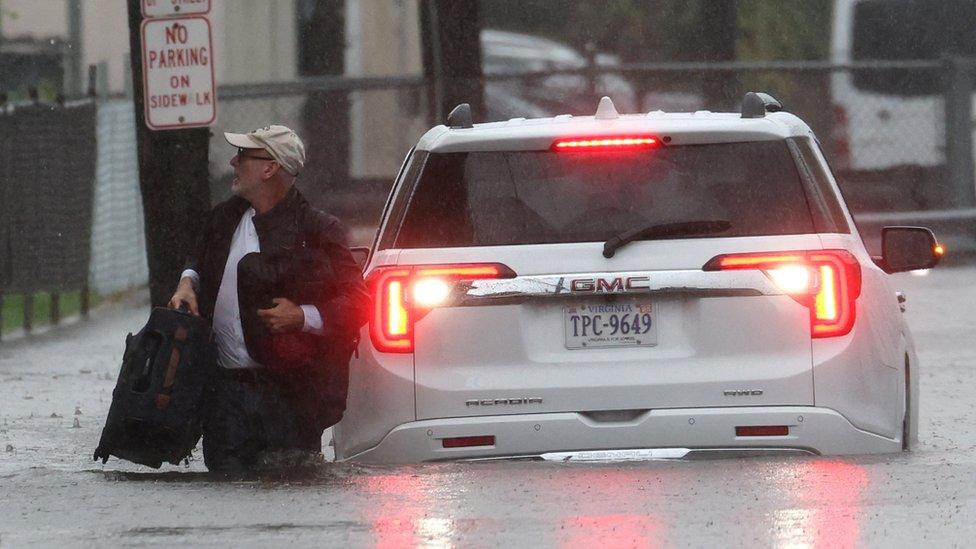
- Published5 October 2021
